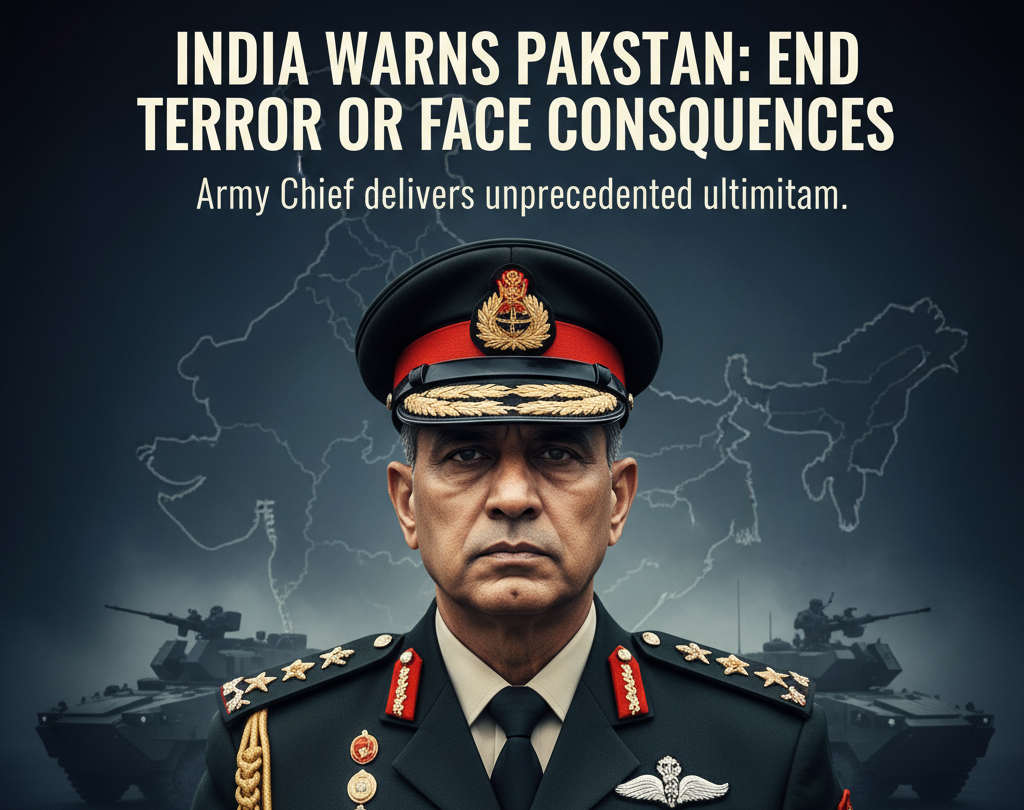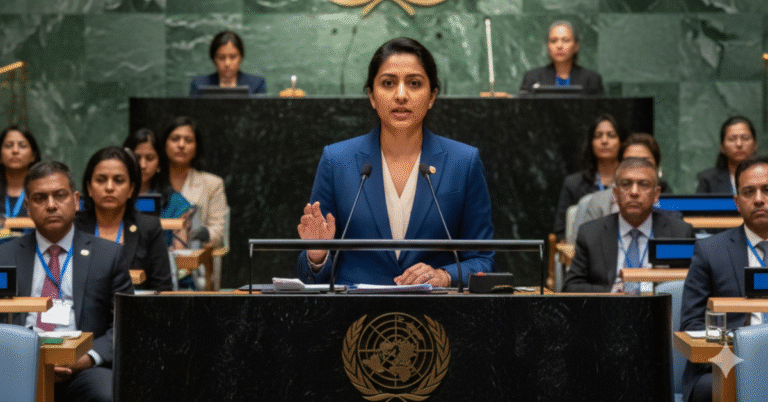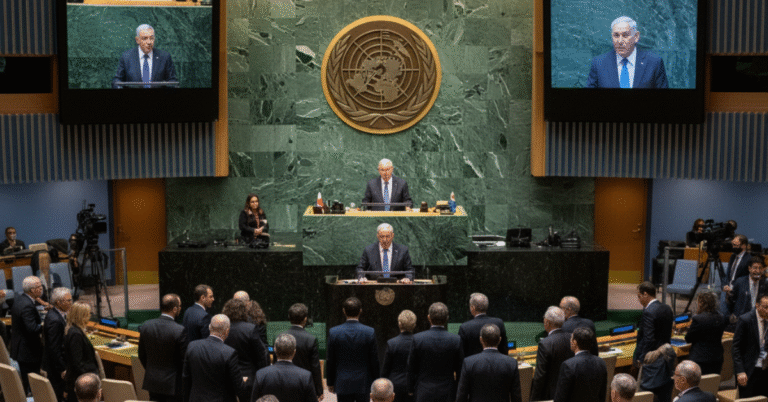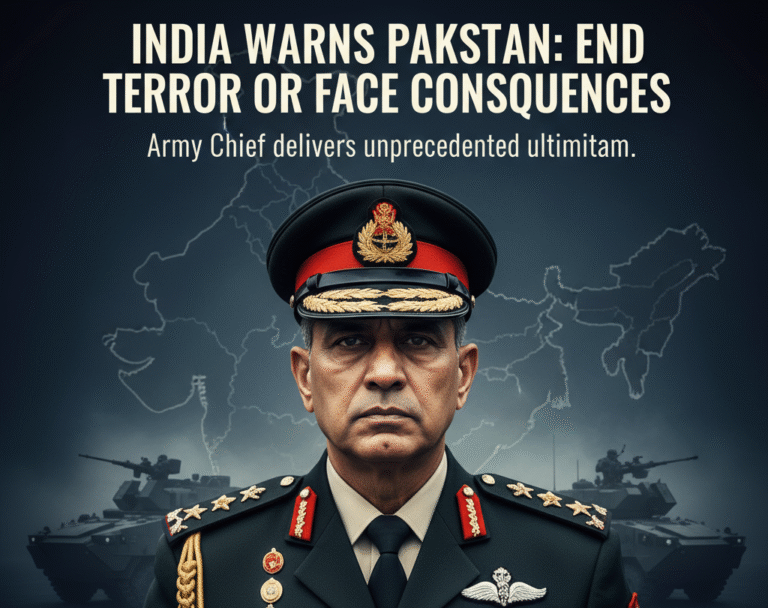
In one of the most direct and stern warnings issued in recent memory, the Indian Army Chief has delivered an unequivocal message to Pakistan: cease all state-sponsored terrorist activities or risk being “erased from the map.” This significant escalation in rhetoric signals a major shift in India’s strategic posture, moving away from a policy of restraint towards a more proactive and assertive stance against cross-border terrorism. The comments, echoed by similar strong statements from Defence Minister Rajnath Singh, have sent shockwaves through the geopolitical landscape of South Asia, placing the onus squarely on Pakistan to alter its course.
A Stark Ultimatum: No More Restraint
The Army Chief’s comments, made during a high-profile press briefing, were unambiguous. “Stop state-sponsored terror if you want a place in geography,” he declared, a statement that leaves no room for misinterpretation. This was not a veiled diplomatic suggestion but a blunt ultimatum. He further elaborated that India “won’t exercise restraint” any longer, a clear departure from the nation’s previous doctrine of ‘strategic restraint’ which often prioritized de-escalation.
Several media outlets reported the Chief hinting at a new operational paradigm, with some quoting a mysterious reference to “Op Sindoor 1.0”. While the specifics of this operation remain classified, the message is clear: India has developed new protocols and is prepared to implement them with decisive force. The warning to “erase” Pakistan from geography is a powerful metaphor for challenging its very existence as a state if it continues to harbor and export terror. This hardened stance reflects a growing impatience within India’s security establishment with what it sees as Pakistan’s perpetual use of terrorism as a tool of state policy.
The Context: A History of Conflict and A New Resolve
This dramatic shift does not exist in a vacuum. It is the culmination of decades of dealing with cross-border terrorism that has claimed thousands of Indian lives, both civilian and military. From the 2008 Mumbai attacks to the attacks in Uri and Pulwama, India has repeatedly presented evidence of Pakistan-based terror groups operating with impunity and support from the Pakistani state apparatus.
While India has responded in the past, notably with the 2016 surgical strikes and the 2019 Balakot airstrikes, this new warning signals a change in the fundamental rules of engagement. Previously, Indian responses were largely retaliatory. The current messaging suggests a move towards a preemptive strategy, where India will not wait for an attack to act. This new doctrine is designed to impose prohibitive costs on Pakistan for its support of terrorism, making the endeavor strategically untenable for its leadership.
The Army Chief’s statement is also strategically aligned with the political will of the Indian government. Defence Minister Rajnath Singh recently issued his own strong warning to Pakistan, particularly in the context of the long-standing Sir Creek dispute—a contested maritime boundary in the Rann of Kutch. Singh’s assertion that India’s strength is not for aggression but for defending its sovereignty complements the Army Chief’s message, creating a unified and formidable front. This synergy between the military and political leadership amplifies the credibility of the threat, signaling that this is not mere rhetoric but a reflection of a deeply integrated national security policy.



